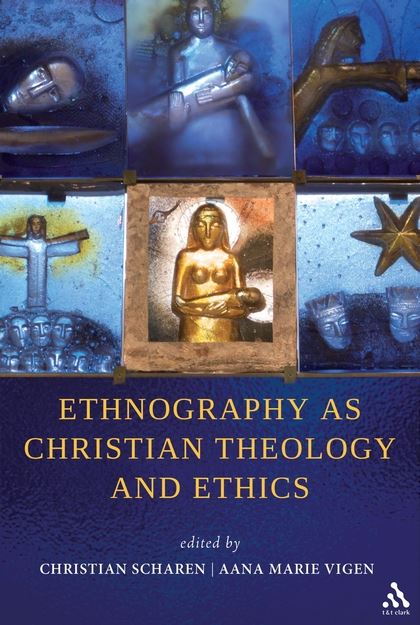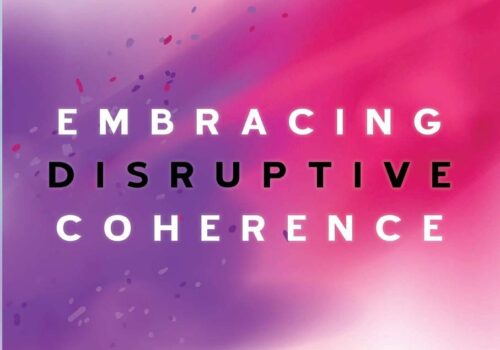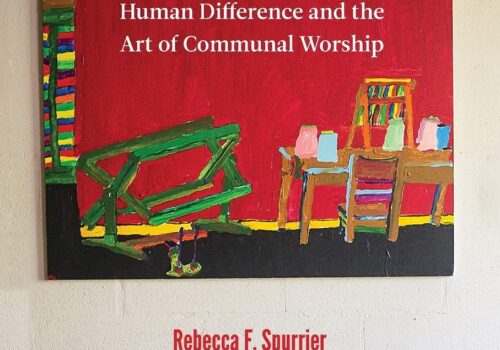Download PDF: RV Douglas, Ethnography
Methods in Christian theology and ethics have been undergoing dramatic changes over the past several decades, perhaps most noticeably in their conversation partners. Where the methods and visions of the natural sciences (with their emphases on objectivity, universality, orderliness, and determinate statements) once played a large role in shaping theology and ethics, contemporary conversation partners are much more likely to come from the social sciences (anthropology, economics, political science, sociology, psychology, etc.) and be shaped by the methods and visions of those sciences: the centrality of subjectivity (or, increasingly, intersubjectivity), the movements and pooling of power, the complexity of human motives, the significance of contextuality, the formative capacities of practices, and the messiness of concrete human existence. These are also ordering concepts for contemporary theology and ethics. Perhaps the newest—and potentially most significant—conversation partner is ethnography, out of which a new lexicon is growing: participant-observer, qualitative analysis, reflexivity, solidarity, etc. Yet the many theologians and ethicists who are taking up ethnography as a conversation partner may justifiably feel isolated or marginalized in their work as there has been no written systematic treatment of the role(s) or potential(s) of ethnography for Christian theology or ethics. Until now.
Ethnography as Christian Theology and Ethics fills that void. The book is broken into three parts, Part One (Prolegomena), co-written by the editors, describes the history, purposes, and criticisms of ethnography and situates it vis-à-vis Christian theology in four helpful chapters. Part Two (Exemplars) shows what ethnography looks like on the ground, with seven chapters written by scholars doing ethnographic work around the world. Part Three (Method), also co-written by the editors, lays out the methods of ethnographic study, including important reminders about the required flexibility, humility, and courage of researchers and the vital role that Institutional Review Boards play in protecting study participants.
For the editors, ethnography (rather ambitiously) is “a process of attentive study of, and learning from, people—their words, practices, traditions, experiences, memories, insights—in particular times and places in order to understand how they make meaning (cultural, religious, ethical) and what they can teach us about reality, truth, beauty, moral responsibility, relationships and the divine, etc.” (16). This close attention to particular people who are given their own voices and are located in their own contexts finds its strongest linkages to theological doctrines like the incarnation and, on a few occasions, the imago Dei (though there are many other viable doctrines in this regard that go under- or un-remarked upon). Given the conditions in which most of the people in the world live, the theological approaches in the book tend toward the liberatory (with a notable foray into the work of the Christian ethicist H. Richard Niebuhr in one essay in Part Two). Moreover, given the emphasis on these people’s actual practices, the ethical approaches tend toward virtue ethics (with a peculiar absence of attention to narrative, pragmatism, and casuistry, all of which emphasize particularity, though in different ways).
Unsurprisingly, theologically-shaped ethnographic work is best understood at concrete and local levels. This makes the second part of the book an especially rich, provocative, and occasionally frustrating reading. Ethnographic studies hold in balance a number of difficult tensions: between observation of and participation in another culture’s practices; between a researcher being reflexively attentive and being self-absorbed; between objective and subjective methodological concerns; between gathering and interpreting data; between generalizable and contextually-specific discoveries; and between discovering and inventing cultures. Each of the authors in the middle section maintains a slightly different center of gravity for maintaining such balance, and as such, I imagine readers will prefer some of these chapters over others but with little agreement on which chapters to prefer. So, for instance, this reviewer was especially impressed with the chapter by Robert Jones on how class distinctions shape theological perspectives in Oregon’s assisted suicide debates and the one by Todd Whitmore on the complex ways race, power, and theology intersect in Ugandan refugee camps—partly because I find the way the two of them balance historical research, systematic theology, and thoughtful fieldwork especially insightful. Yet other readers might find more wisdom in, for example, Peter Gathje’s exploration of power and community-formation in Atlanta’s Open Door Community or Melissa Browning’s study of the theological perspectives of Kenyan street children).
As with any discipline, ethnography’s strengths also reveal its flaws. While ethnography attempts to dignify the voices and visions of its subjects, treating them as full persons rather than objects for examination, it can risk romanticizing those subjects. “Spanish-speaking hospital patients,” “HIV-positive women in Chicago,” “Indigenous Catholics in Chiapas,” “Kenyan Street Children”: all these are categories of vulnerable populations made up of discrete individuals who think and behave in morally complex ways but do not think and behave in the same ways. The ethnographer who would work with such people is placed in the difficult position of using open-ended interviews as a means toward finding common threads among many (possibly incongruent) narratives as a basis for his or her writing. Shaping those threads to emphasize the subjects’ collective dignity risks treating them as less than the discrete, complex, and morally ambiguous individuals that they are. In Among the Thugs, Bill Buford does what I can only call an ethnographic study of English soccer hooligans.1 One wonders what would have become of the truths Buford revealed in that book if he believed his first obligation was to respect a dignity in his subjects that they were busy denying in themselves and others.
Where ethnography attempts to learn from its subjects, treating them as collaborators in research rather than objects under investigation, it can risk undervaluing the ethnographer’s own expertise on and participation in that research, thereby perversely undermining the ethnographer’s recognition of his or her own agency even as it attempts to affirm the subjects’ agency. In response, many of the authors in the book emphasize the importance of reflexivity—of attempting to remain aware of one’s own motives and desires. Yet reflexivity that constantly questions one’s own motives while pushing more agency toward the subjects risks either inverting the power differential between ethnographer and subject (which is no closer to true collaboration) or reaffirming the problematic relationship in which the researcher “takes”—in this case taking the wisdom of the other—while the subject “gives.” Aana Marie Vigen, for instance, writes, “As a white, presently healthy and well-insured academic, Christian, and US citizen, I have discerned that my vocational calling entails learning from and advocating for those who are uninsured, darker skinned, undocumented, in ill health, at the risk of being ignored and/or mistreated” (8). While the intentions expressed in that sentence seem laudatory, missing is the possibility that Vigen, as an expert trained in health care ethics, might teach those “uninsured, darker skinned, undocumented . . .” individuals so that they can advocate for themselves. Yet to do so, Vigen (as any other ethnographer) will not only have to recognize her expertise in the matters she is studying but honor and express it as the wisdom that she brings into her collaboration with her subjects.
Finally, where ethnographers attempt to meld a social science with Christian theology and ethics, it risks turning theology and ethics into the handmaidens of science. While Christian theologians John Milbank and, especially, Stanley Hauerwas come under critical and justifiable scrutiny in this book for their opposition to the power of the social sciences, they do have a point: theology and the practices of Christian discipleship not only have the power to form habits of mind and body but, in forming them, to gain critical purchase against tendencies to treat theology and ethics only as occasionally useful tools for addressing particular types of suffering. Certainly, theology and ethics, at their best, are tools for addressing suffering. They are not, though, simple tools precisely because they shape their users not only to address suffering but to make sense of it (or, in some instances, to avoid making too much sense of it). Likewise, ethnography, at its best, is a tool to help us address the suffering of particular people in particular contexts by learning to understand it from within that context. What, though, are the relations between such forms of address? Ethnography can help us do theology and ethics better: this is clear from the book. Less developed, though, is whether Christian theology and ethics help us do ethnography better. How do Christian theology and ethics shape the way to do ethnographic studies? For a book entitled Ethnography as Christian Theology and Ethics, this latter question could stand further exploration than the book gives. Fortunately, because this book is a first important word on ethnography and Christian theology and ethics, it need not be the last one.
Notes
- Buford, Bill, Among the Thugs(New York: Vintage Departures, 1993).




